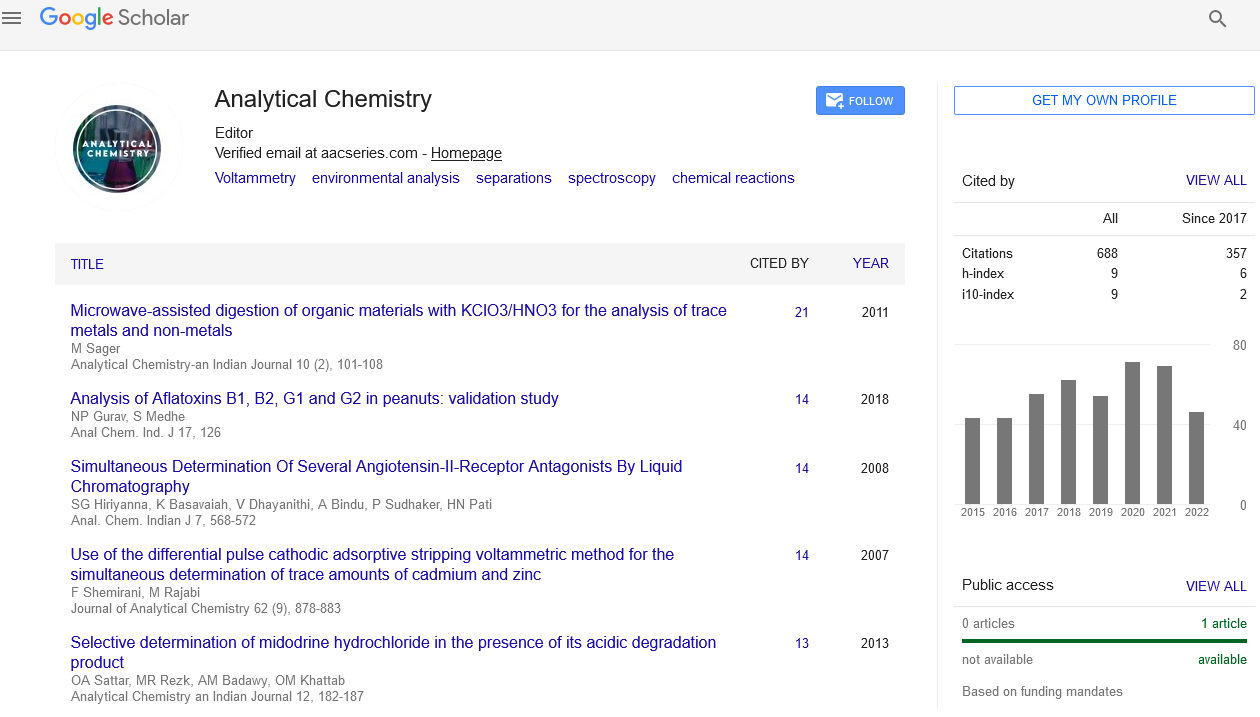Abstract
Comparison of adsorptive stripping voltammetry with sensitized spectrophotometric for determination of copper ion using phenyl-2-pyridil ketone oxime
Author(s): F.Ahmadi, G.ShafieA simple accurate and sensitive micellanized spectrophotometric method and sensitive and selective voltammetric procedure for determination of copper (II) ion using phenyl-2-pyridil ketone oxime (PPKO) has been compared. The spectrophotometric determination of copper using PPKO in the presence of anionic surfactant SDS has been performed. The influence of type and amount of surfactant, pH, complexation time and amount of ligand on sensitivity of spectrophotometric method were examined. The voltammetric procedure involves an adsorptive accumulation of Cu2+- PPKO on a hanging mercury drop electrode, followed by a stripping voltammetric measurement of reduction current of adsorbed complex at about -0.30V(vs. SCE). The optimumconditions for the analysis of copper (II)was fixed in pH(5.8-7.0), 60ïÂÂMPPKO, accumulation potential and time of -0.5V (vs. SCE) and 60s. The peak current is proportional to the concentration of copper over the range 0.3-76ng mL-1 with a detection limit of 0.01ng mL-1. In spectrophotometric method the Beers law is obeyed over the concentration range of 0.3-21.0ìg mL-1 in surfactant median with detection limits of 1.4 ng mL-1. Finally in both methods, the repeatability, accuracy and the effect of interfering ions on the determination of copper ion were evaluated. The proposed methods successfully with recovery yield of almost 100%have been applied for the rapid and simple determination of copper in the real samples. There is a good agreement between methods and atomic absorption spectrometry.

